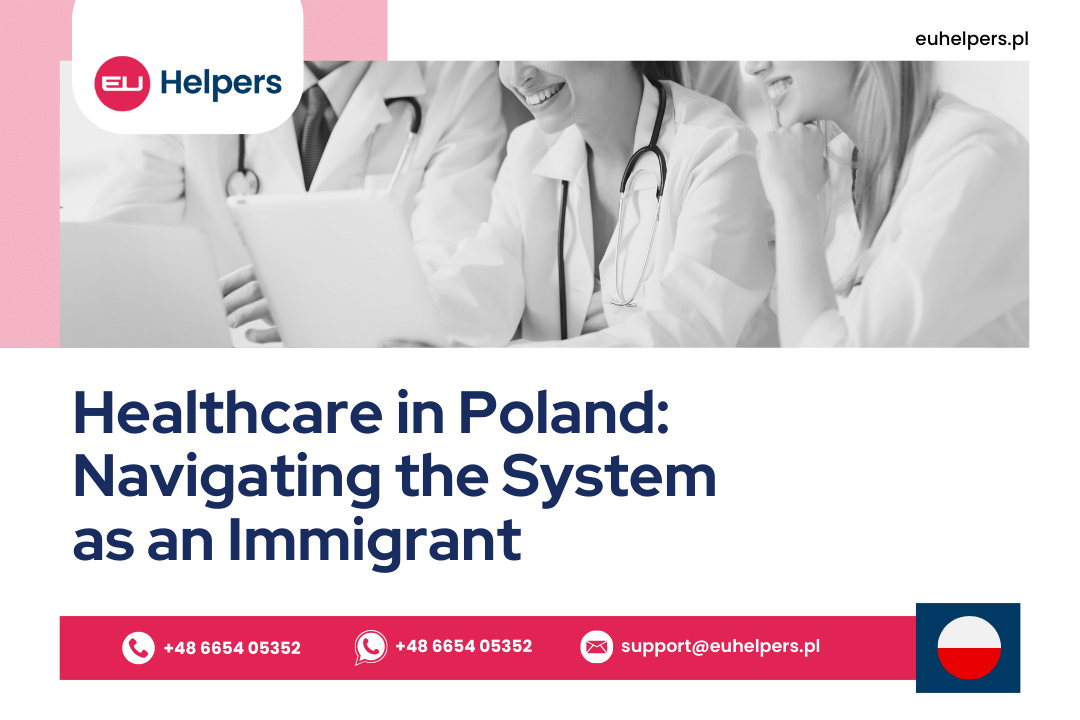
Navigating the Polish healthcare system as an immigrant can be both challenging and rewarding. Understanding the key components of healthcare in Poland is essential for ensuring access to quality medical services. This comprehensive guide will delve into the structure of the healthcare system, the role of public and private healthcare, and offer practical tips for immigrants seeking medical care.
Overview of the Healthcare System:
Poland has a public healthcare system that provides basic medical services to residents. The National Health Fund (NFZ) is the primary institution responsible for managing public healthcare funds. However, the system faces challenges such as long waiting times for certain procedures and shortages of medical personnel.
Access to Healthcare:
As an immigrant, your access to healthcare in Poland largely depends on your residency status. European Union (EU) citizens have the right to use the public healthcare system, while non-EU citizens may need additional health insurance coverage. It's crucial to understand your eligibility and explore available options.
Public Healthcare:
The public healthcare system in Poland covers a wide range of medical services, including doctor visits, hospital stays, and essential treatments. To access these services, residents must register with the NFZ and choose a primary care physician. However, some specialized treatments may have long waiting lists.
Private Healthcare:
Many immigrants opt for private healthcare to avoid the drawbacks of the public system. Private clinics and hospitals offer quicker access to medical services and a broader range of treatments. However, these services come at a cost, and having private health insurance is advisable to cover expenses.
Health Insurance Requirements:
While public healthcare is funded through mandatory contributions, immigrants may need additional health insurance coverage. Non-EU citizens often require private health insurance to meet visa requirements. EU citizens should carry a European Health Insurance Card (EHIC) for access to public healthcare.
Choosing a Healthcare Provider:
When navigating the healthcare system in Poland, consider factors like the proximity of medical facilities, the reputation of healthcare providers, and language barriers. Many healthcare professionals in larger cities speak English, but it's beneficial to learn basic Polish medical terms to enhance communication.
Emergency Medical Services:
In case of emergencies, call the universal emergency number 112 for immediate assistance. Emergency medical services in Poland are well-equipped and responsive. Understanding basic phrases in Polish related to emergencies can facilitate communication in critical situations.
Cultural Considerations:
Poland has a rich cultural heritage, and understanding cultural norms in healthcare is essential. Establishing good communication with healthcare providers, respecting local customs, and being proactive in seeking information can enhance your experience within the healthcare system.
Tips for Immigrants:
1. Documentation: Keep important documents, including your residency permit, health insurance, and any medical records, in a secure and easily accessible location.
2. Language Skills: While English is widely spoken in urban areas, learning basic Polish phrases can improve your overall healthcare experience and help you navigate daily interactions.
3. Cultural Sensitivity: Respect cultural differences, and be open to learning about Polish healthcare practices. This can foster positive relationships with healthcare professionals.
4. Community Resources: Connect with immigrant communities or expat groups, as they can provide valuable insights and support in navigating the healthcare system.
In conclusion, while navigating the Polish healthcare system as an immigrant may pose challenges, understanding the structure, accessing the right insurance, and being proactive in your approach can ensure a positive healthcare experience. Balancing the benefits of public and private healthcare, along with cultural sensitivity, will contribute to your overall well-being in your new home.
